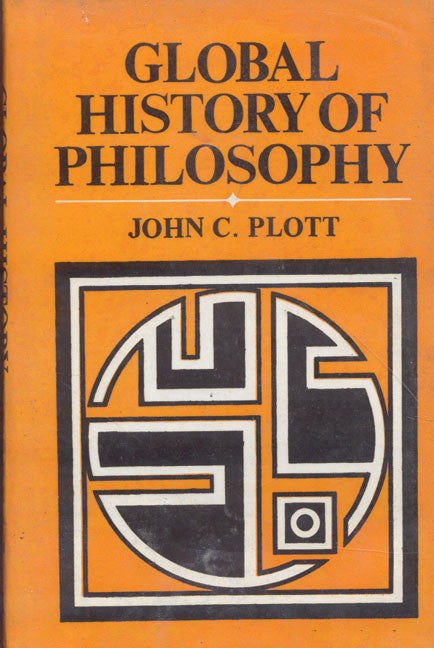Global History of Philosophy (Vol. 1): The Axial Age (250 B.C.)
![]() 100% Genuine New Books
100% Genuine New Books
![]() Fast Shipping with Tracking Number
Fast Shipping with Tracking Number
Secure Payments via UPI, Cards & Wallets
![]() Trusted Support & Easy Returns
Trusted Support & Easy Returns
Global History of Philosophy (Vol. 1): The Axial Age (250 B.C.) - Hardcover is backordered and will ship as soon as it is back in stock.
ISBN : 9788120801585, 812080158
Year of Publication : 2000
Edition : 1st
No. of Pages : 240
Language : English
Condition : New
Publisher: Motilal Banarsidass Publishing House
Free shipping on orders over Rs. 249
Free shipping on orders over Rs. 249
We offer free shipping on orders above Rs. 249 in India. For orders below this threshold, a nominal shipping fee may apply, which will be clearly indicated during the checkout process.
How long will it take to receive my order?
How long will it take to receive my order?
The delivery time varies depending on your location. Generally, orders are processed and shipped within 1-3 business days. Once shipped, you can track and expect your order to arrive within 3-7 business days (the duration may vary depending on your location). For more information, please refer to our shipping policy.
Chat with a Real Person
Chat with a Real Person
WhatsApp chat is dedicated to assisting with after-sales queries regarding delivery, returns, and payments. Click below to initiate chat with us on WhatsApp:
[Bookstaa WhatsApp Chat].
For all other inquiries, please visit our customer support page or email us at support@bookstaa.com.
Couldn't load pickup availability
Description
Description
This is the first in a series of five volumes on the global history of philosophy. In this and subsequent volumes instead of the traditional division of western and non western philosophies each philosophy is seen in relation to global contemoraries.throughout Eurasia. Scholasticism should not be taken in the pejorative sense as the juggling of arguments by straw men, but in the sense of a
challenge even in our own era to work for consistent and comprehensive systematic synthesis. All the "older traditions" need to be reinterpreted in terms of "modern conditions"-which after all, is what the Eurasian scholastics of these centuries were doing for their own time.
The major developments of this period are "Monism in Many Moods" during the ninth century, through "Exfoliation and Elaboration" of those seminal systems in the tenth and eleventh centuries until the time of the "Great Summas" in the twelfth and thirteenth centuries. It was during this time
that philosophy and theology developed a very highly sophisticated technique of balancing arguments and refutations and counter-arguments and counter-refutations. Most of these architectonic structurings were in the form of commentaries on basic handbook texts handed down as authoritative
scripture.
In every culture of Eurasia systematic philosophy as well as intuitive
wisdom had reached a high degree of sophistication from which it might be
said that it has never quite completely recovered. In terms of method,
seldom since has there been such thoroughness in treatment of every single
topic, with arguments and counter-arguments architechtonically juxtaposed
and counter-balanced into such a grand harmony. As is true of the whole
series, these volumes are a new way of exploring the accumulative wisdom of
mankind, and in the process explode many of the ethnocentric stereotypes
which still hinder intercultural communications and world peace through
intercultural understanding.
Review(s)
About the Author(s)
JOHN C.PLOTT received his B.A. degree with Phi Beta Kappa honors at the
University of Oklahoma and Ph.D. degree from Banaras Hindu University. He
is now teaching philosophy at Marshall University, U.S.A. He constantly
concerned for World Peace through Global Understanding and Social Justice
through Gandhian Practice.
About the Publisher

Motilal Banarsidass Publishing House (MLBD)
Motilal Banarsidass Publishing House, popularly known as MLBD, is one of the oldest and most prestigious publishing houses in India, established in 1903.
With over a century of legacy, MLBD has been at the forefront of publishing scholarly works in the fields of Indology, Sanskrit, philosophy, religion, spirituality, yoga, Buddhism, and Jainism.
Renowned for its authenticity and academic rigour, MLBD's books are trusted by researchers, scholars, and readers across the globe.
With more than 5,000 titles in circulation, MLBD continues to uphold its commitment to preserving and promoting India’s rich cultural and philosophical heritage.
Bookstaa is an authorized distributor of MLBD books, ensuring 100% genuine and original publications for our readers.

